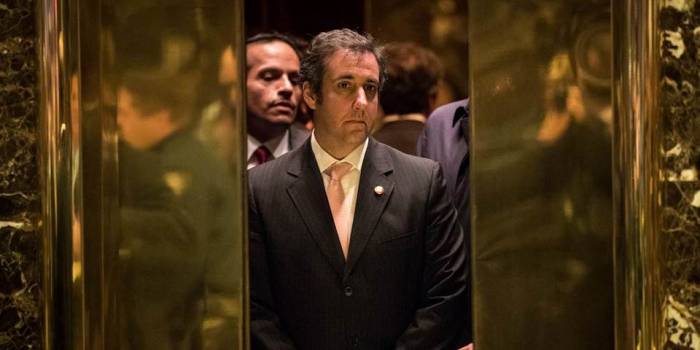Last week was a most unusual one for President Donald Trump’s administration. There was no high-level firing: the only dismissal of any note was that of the White House aide in charge of homeland security, who was forced out at the behest of John Bolton, who had just taken over as Trump’s third national security adviser in 15 months. Nonetheless, it may well have been the most turbulent week yet of Trump’s presidency.
Bolton’s appointment was enough to set much of Washington trembling with fear that he would reinforce Trump’s most pugnacious views, for example, that the 2015 Iran nuclear agreement should be scrapped. Still, it has been widely speculated that Bolton, reportedly a bureaucratic whiz, was outmaneuvered by Defense Secretary James Mattis on the question of how far to take the military attack on Syria in retaliation for the latest use of chemical weapons by Bashar al-Assad’s government against its own people. In the end, the attacks by the US, the United Kingdom, and France were restricted to targets believed to be chemical weapons and storage facilities.
Questions are being raised in the Senate about the suitability of Mike Pompeo, a hardliner on Muslims and Russia, to succeed Rex Tillerson as Secretary of State. And with Bolton now ensconced in the West Wing, the consensus is that only Mattis stands between Trump and military overreach. (Mattis supports the Iran deal.)
Trump’s most peculiar recent personnel move – part of an ever-growing list of dismissals – was to fire David Shulkin as head of the Veterans Administration, a Leviathan of an agency, and nominate his personal physician for the job. The number of pending nominations for high-level positions ahead of November’s midterm congressional elections is believed to be one reason for Trump’s reluctance to fire his most controversial appointee, Scott Pruitt, the head of the Environmental Protection Agency. Pruitt’s determination to reverse the EPA’s achievements in reducing air and water pollution, especially regulations adopted during Barack Obama’s presidency, bespeaks Trump’s own resentment of Obama. In addition, major polluting industries are enthusiastic about Pruitt.
The problem is that in an administration filled with grifters and experts at indulging in first-class air travel and other comforts at taxpayers’ expense, Pruitt is probably the champ. Trump blows hot and cold on Pruitt, and observers have learned not to predict what he might do with regard to any aspect of policy and personnel.
That is also true of the question creating the most tension: whether Trump will try to end the investigation into whether he or his campaign conspired with Russians to try to swing the 2016 election in his favor. The evidence of such collusion is mounting. Trump, according to many observers, has absorbed the idea that firing Special Counsel Robert Mueller, who is leading the probe, wouldn’t go down well at all. The supine congressional Republicans, terrified of Trump and his base of devoted supporters, are actually beginning to show some spine and are moving toward backing a resolution that would protect Mueller, who is supported by a large majority of the public.
But Trump and his closest congressional allies are still trying to undermine the investigation by smearing the FBI, which is implementing it, and Justice Department officials who are overseeing the FBI’s work. Trump has hinted that he may fire Deputy Attorney General Rod Rosenstein, who presides over the investigation. The president remains furious that Attorney General Jeff Sessions, who was Trump’s sole Senate backer from early in the 2016 campaign, has recused himself from the investigation.
When Trump gets particularly angry, he remains so, exhibiting his rage in unexpected ways. It seems that nothing has made him angrier than the FBI’s extraordinary April 9 raid on the office, home, and hotel room of Michael Cohen, his principal personal attorney and fixer. Ostensibly, the FBI acted because Cohen had been involved in the most lurid aspects of Trump’s public career. But Cohen might also have been involved in a 2016 conspiracy with Russia, and his own business affairs are under investigation.
Since early this year, it has seemed possible that Trump might be brought down not by his and his campaign’s possible dealings with Russia, but by a pulchritudinous adult film star whose professional name is Stormy Daniels (her real name is Stephanie Clifford). Daniels and her aggressive attorney are fearless toward Trump, on whose behalf Cohen arranged to pay her $130,000 shortly before the election to keep quiet about her one-time liaison with Trump, which occurred early in his marriage to Melania Trump and four months after the birth of his son, Barron.
One question raised by the deal is whether the $130,000, which Cohen says he paid out of his own pocket without Trump’s knowledge, amounted to an illegal campaign contribution. Another mystery is why Trump, who has been less bothered by revelations of a longer affair at around the same time with a former Playboy model, seems particularly terrified of Daniels. Unusually for him, he has refused to comment or tweet about her.
At week’s end, a memoir by former FBI director James Comey, whose firing by Trump led to Mueller’s appointment, began to leak, also arousing Trump’s ire. He called Comey a “weak and untruthful slime ball,” and, as has happened before, his attack on the author of an unflattering book helped propel it to the top of the bestseller list before it was officially released. The attack on Syria seems to have distracted public attention from Trump’s scandals only temporarily, given Comey’s coming high-profile book tour. But there is a growing sense that what Mueller is in the process of getting on Cohen may present the greatest danger of all to the president.
Elizabeth Drew is a contributing editor to The New Republic and the author, most recently, of Washington Journal: Reporting Watergate and Richard Nixon's Downfall.
Read the original article on project-syndicate.org.
More about: Trump
















































